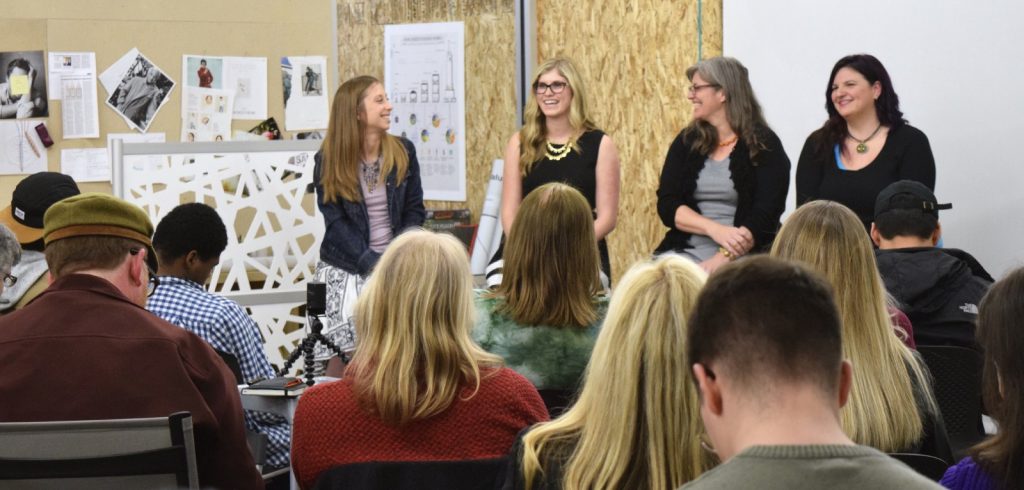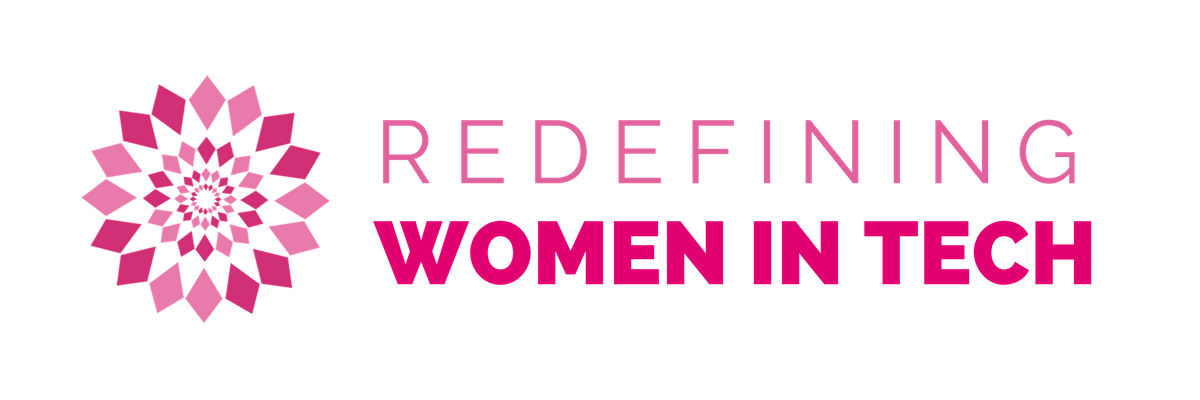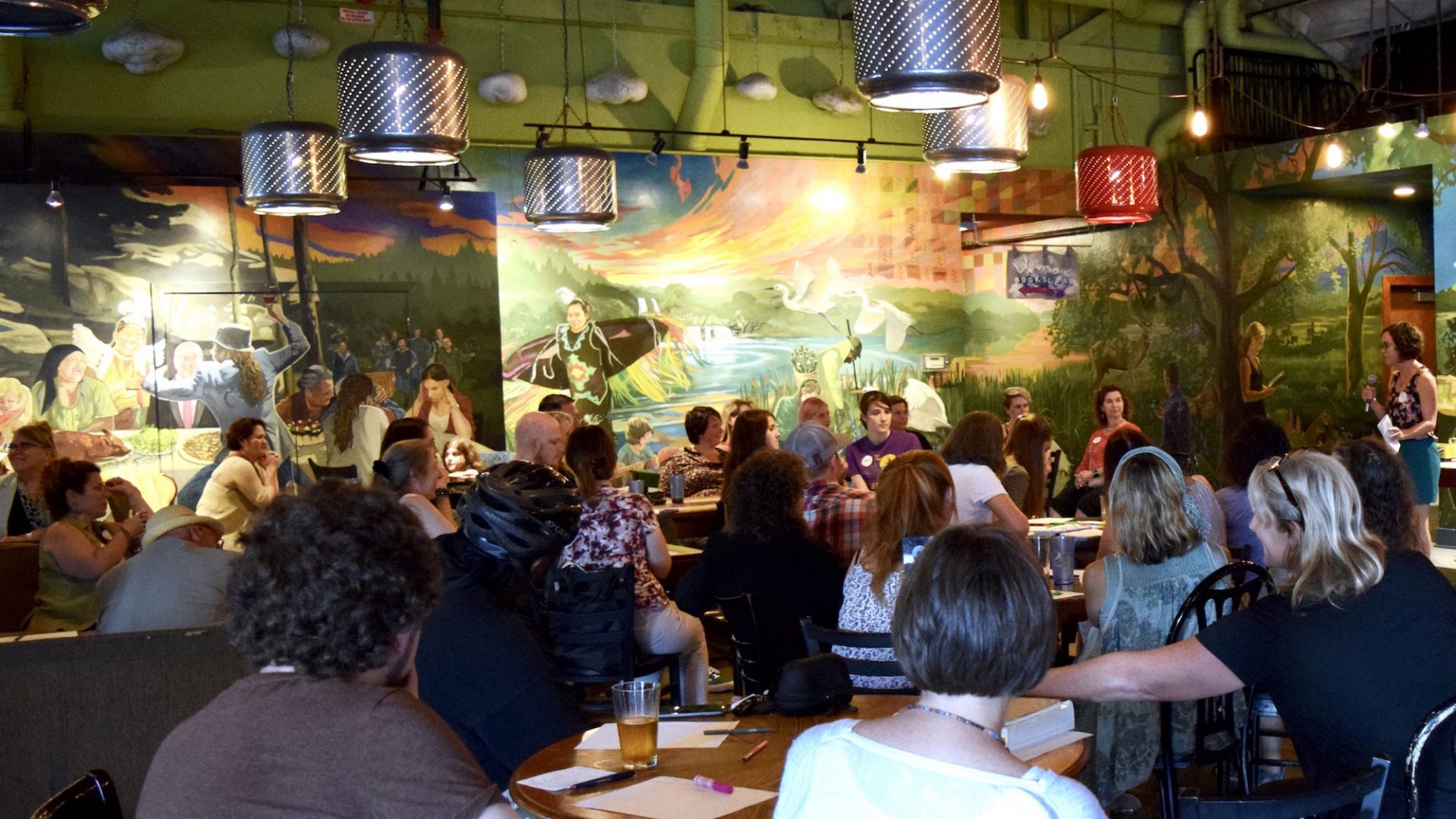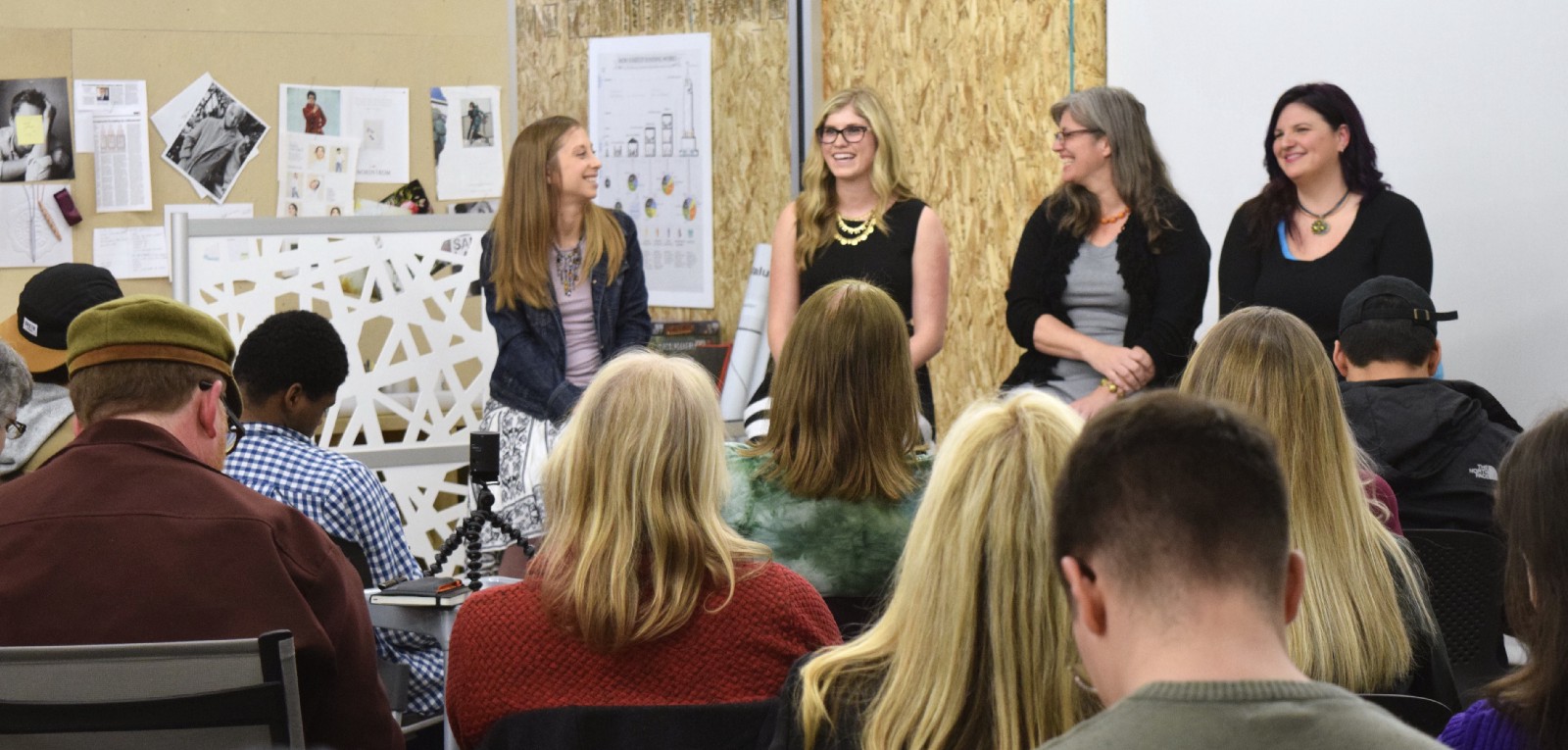Three years ago I was recruiting for a technical lead position in Eugene, Oregon and was struggling with it. I asked a friend for advice.
At the time, my friend was also running a software development company, but he was willing to offer us headhunting services since his team was fully staffed. When we sat down to talk about our ideal candidate, I listed my desired skills and qualifications. At one point, I accidentally found myself referring to the candidate as “him” before quickly correcting myself and adding “or her.”
My friend looked at me and laughed,
“Do you really think that if we found a woman with these qualifications we would give her to you? We would keep her for ourselves!”

His reaction stuck with me.
I realized in that moment how much power women in technical roles have, and how high the demand is. I also realized we have an opportunity within our community to close the gap. Eugene is just small enough and different enough that we should be able to make an impact.
Soon after this experience I was asked to join the Lane County Community College CIT Advisory Board, in part because I am female and they want more diversity on the board. On the agenda every quarter was a line item to discuss improving gender diversity in the program. After several meetings, a group of women from the board formed a subcommittee to discuss the initiative, gather data, and research existing efforts.
We invited Kiki Prottsman, local women-in-tech topic expert, to advise us. Her experience founding and running a non-profit that focused on gender-inclusive STEAM programming and as Education Program Manager for Code.org has taught her a great deal about diversity in tech fields.
Recently, I asked Kiki,
“Diversifying tech teams is such a multi-faceted issue. When a company asks you where to start, what do you tell them?”
Her answer surprised me:
Language.
The language you use in your job descriptions, in the way you describe your culture, in your day-to-day team communication — it has an impact.
We decided that it was time to start a new conversation about tech.
We asked ourselves,
What would get more women to come and join our conversation? What do they all have in common?
One answer is social media, LinkedIn.
Professionals today should have an up-to-date LinkedIn profile as much as they should have an intelligently crafted resume. Most professionals also wish they knew how to get more out of it.
It became clear that for our first community discussion we should gather female topic experts to lead a conversation about social media and provide practical LinkedIn advice. After the discussion, attendees would have the opportunity to get personalized advice and skill endorsements.
We are starting a new conversation about tech.
The community response was impressive.
The room was packed with smiling women and men. The crowd was composed of high school students, students from LCC and University of Oregon, local educators, program managers, people looking for career change, mixed in with some of the more familiar EugeneTech and Eugene-Springfield Startups faces. The women on the panel provided a diverse cross section of experience, and the audience responded to that.

After the panel, before the event was over, gratitude began to pour in. The feedback was mainly positive, and some was really interesting.
My personal question was,
What made so many people show up at the inaugural event, without having much information about what to expect?
My thoughts follow:
- Low barrier to entry
Free. An hour and a half time commitment. - Inclusivity
All ages. Anyone interested in the topic was invited to join us. - All female presenters
Listening to feedback from other women in the community, we’ve heard that big events can often advertise having featured women at an event, and not give them much airtime. Women attending these events can feel duped or let down. We know men have invaluable insights to add to tech panel discussions, but we found that women related better to insights provided by other women.
Focusing on female presenters helped us present another perspective in the tech industry that is often underrepresented. This enabled us to offer women a more relevant experience while providing interesting content for everyone. - Marketing
Our social media and communication strategy helped us carry the message to new people. We had a visually appealing event flyer with all of the details. We promoted on a few platforms, but streamlined event details through Facebook and Meetup. We emailed every school and department that could, as well as friends within the Eugene digital creative scene. - Eugene’s awesome infrastructure
In addition to helping us promote the event, RAIN Eugene provided us with a meeting space and EugeneTech came through with live stream support during the event! Contacts at LCC and UO helped spread the word, along with our friends at local co-working spaces and incubators.
What’s next?
We are continuing the conversation on social media platforms and planning future panel discussions in the Eugene area. We believe that we can have an impact on diversifying our tech community by connecting people and bringing more attention to interesting career opportunities.
Fortunately, we aren’t the only ones starting this conversation.
Diversity in tech is coming up time and time again, and a lot of it is around #womenintech. What about beyond coding and engineers?
— Stacy White Atherton (@StacyB_) March 3, 2017
I truly believe that the most powerful advice for #WomenInTech comes from other women. Excellent read: https://t.co/HASIQoG2HV pic.twitter.com/pq0KgN9Jcu
— Michael Greene (@greene1of5) February 13, 2017
#IWD2017 – A top #WTM17 in @Google Mountain View for putting together such an #inspiring, #inclusive and #diverse talks of #WomenInTech ??? https://t.co/jLk7iWAaIL
— Sandrine Fouillé ♠️ (@sfouille) March 5, 2017
The solution to diversifying tech is complicated and will require a lot more discussion. It won’t be the same solution for every community, but we do know that language and awareness is part of it.
Join the conversation online at Redefining Women in Tech and in your community to become part of the solution.


